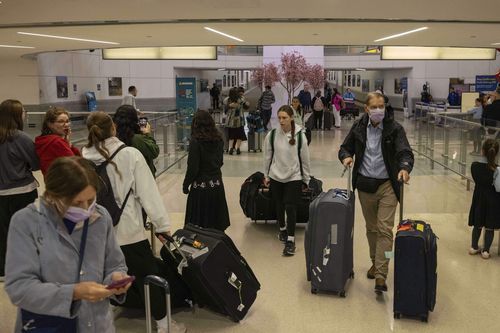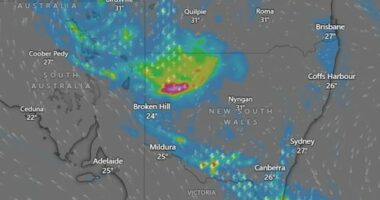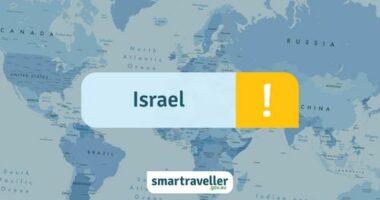Share this @internewscast.com
Last week, Trump signed a new proclamation affecting citizens from Afghanistan, Myanmar, Chad, the Republic of Congo, Equatorial Guinea, Eritrea, Haiti, Iran, Libya, Somalia, Sudan, and Yemen. Additionally, it introduces stricter restrictions for individuals from Burundi, Cuba, Laos, Sierra Leone, Togo, Turkmenistan, and Venezuela who are outside the US without a valid visa.
As per the guidance issued to US diplomatic missions on Friday, the new ban does not cancel previously issued visas to those from the listed countries. Nevertheless, starting Monday, unless applicants qualify for a narrow set of exemptions, their visa applications will be declined. Despite the ban, travelers with existing visas should still be able to enter the US after it comes into effect.

In Trump’s first term, a rapidly drafted executive order barred entry for citizens of several predominantly Muslim countries, causing widespread confusion at various airports and entry points. This led to successful legal objections and significant adjustments to the order.
No such disruption was immediately discernible at Los Angeles International Airport in the hours after the new ban took effect.
Haitian-American Elvanise Louis-Juste, who was at the airport earlier on Sunday in Newark, New Jersey, awaiting a flight to her home state of Florida, said many Haitians wanting to come to the US are simply seeking to escape violence and unrest.
“I have family in Haiti, so it’s pretty upsetting to see and hear,” Louis-Juste, 23, said of the travel ban. “I don’t think it’s a good thing. I think it’s very upsetting.”
Many immigration experts say the new ban is more carefully crafted and appears designed to beat court challenges that hampered the first by focusing on the visa application process.
Trump said this time that some countries had “deficient” screening for passports and other public documents or have historically refused to take back their own citizens. He relied extensively on an annual Homeland Security report of people who remain in the US after their visas expired.

Measuring overstay rates has challenged experts for decades, but the government has made a limited attempt annually since 2016. Trump’s proclamation cites overstay rates for eight of the 12 banned countries.
Trump also tied the new ban to a terrorist attack in Boulder, Colorado, saying it underscored the dangers posed by some visitors who overstay visas. US officials say the man charged in the attack overstayed a tourist visa. He is from Egypt, a country that is not on Trump’s restricted list.
The ban was quickly denounced by groups that provide aid and resettlement help to refugees.
“This policy is not about national security â it is about sowing division and vilifying communities that are seeking safety and opportunity in the United States,” said Abby Maxman, president of Oxfam America, a nonprofit international relief organisation.
The inclusion of Afghanistan angered some supporters who have worked to resettle its people. The ban does make exceptions for Afghans on Special Immigrant Visas, generally people who worked most closely with the US government during the two-decade-long war there.
Afghanistan had been one of the largest sources of resettled refugees, with about 14,000 arrivals in a 12-month period through September 2024. Trump suspended refugee resettlement his first day in office.










